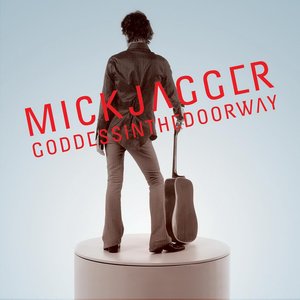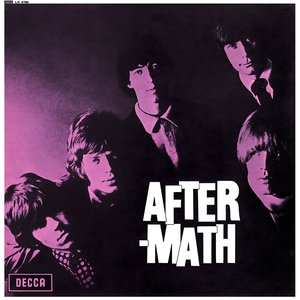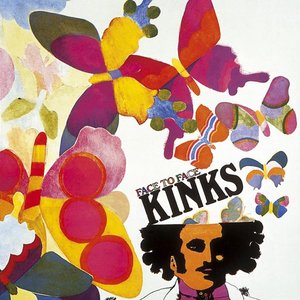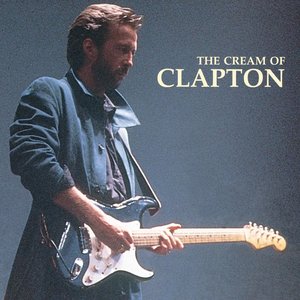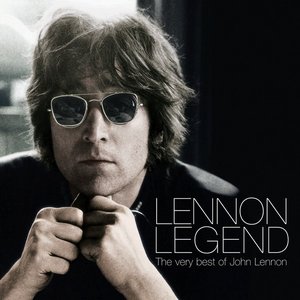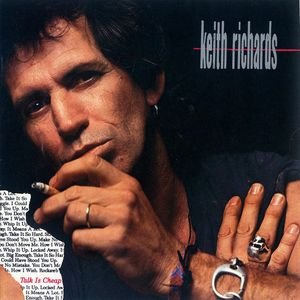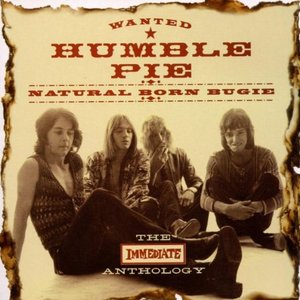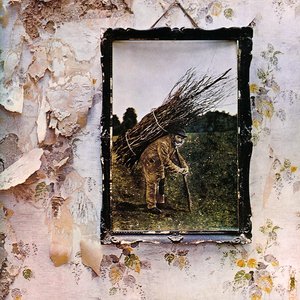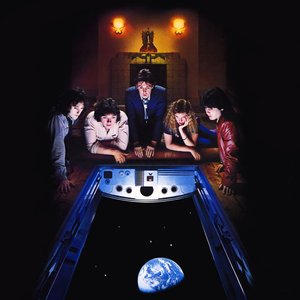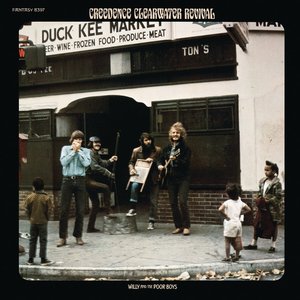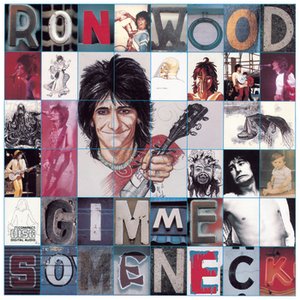Wiki
-
Release Date
26 May 1972
-
Length
18 tracks
Exile on Main St. is an album by the English rock band The Rolling Stones. It was released as a double LP in 1972 and drew on influences from rock & roll, blues, country and soul. Initially "Exile" was greeted with lukewarm reviews, but is now widely considered among the band's finest work and one of the defining masterpieces of the rock era. In 2003, the album was ranked number 7, the band's highest position, on Rolling Stone magazine's list of the 500 greatest albums of all time.
Exile on Main St. is an album composed of outtakes and tracks written and recorded over the period of four years, from 1968 to 1972. On those earlier songs, singer Mick Jagger said in 2003, "…After we got out of our contract with Allen Klein, we didn't want to give him ," as they were forced to do with the songs "Brown Sugar" and "Wild Horses" from Sticky Fingers. Most were recorded between 1969 and 1971 at Olympic Studios and Richard's Stargroves country house in England during sessions for Sticky Fingers.
By the spring of 1971, the Stones chose to abandon their home country of England to avoid the amount of taxes the British government expected the band to pay. The Stones would have to leave by 5 April, or the government would have seized their assets. After much consideration, the Stones chose to settle in France at Villefranche-sur-Mer, near Nice, where guitarist Keith Richards had rented Nellcôte, the "Gestapo headquarters during the Second World War," according to Richards, complete with swastikas on the floor vents. It was here that the Stones would begin work constructing their next album.
Recording began in earnest sometime near the middle of June. Bassist Bill Wyman recalls the band working all night, every night, from eight in the evening until three the following morning for the rest of the month. Wyman said of the times, "…not everyone turned up every night. This was, for me, one of the major frustrations of this whole period. For our previous two albums we had worked well and listened to producer Jimmy Miller. At Nellcôte things were very different and it took me a while to understand why…" By this time Richards had begun a daily habit of using heroin. Thousands of dollars of heroin flowed through the mansion each week in addition to a contingent of visitors that included the likes of William S. Burroughs, Terry Southern, Gram Parsons, and Marshall Chess (who was running the Stones' new label). Contrary to popular belief, Parsons does not appear on the album and was asked to leave Nellcôte in early July 1971, the result of both his obnoxious behaviour and an attempt by Richards to clean the house of drug users as the result of pressure from the French police.
Richards' steadily growing addiction began to inhibit his ability to perform, often leading the band having to record in altered forms without every member present. A notable instance was the recording of one of Richards' most famous songs, "Happy". Recorded in the basement, Richards said in 1982, "'Happy' was something I did because I was for one time EARLY for a session. There was Bobby Keys and Jimmy Miller… We had nothing to do and had suddenly picked up the guitar and played this riff. So we cut it and it's the record, it's the same. We cut the original track with a baritone sax, a guitar and Jimmy Miller on drums. And the rest of it is built up over that track. It was just an afternoon jam that everybody said, 'Wow, yeah, work on it'".
The basic band for the Nellcôte sessions is believed to have consisted of Richards, Bobby Keys, Mick Taylor, Charlie Watts, Miller (a notable drummer in his own right who covered for an absentee Watts on the aforementioned "Happy" and "Shine a Light"), and Jagger when he was available. Wyman did not like the ambience of the Richards' villa and sat out many of the French sessions. As Wyman appeared on only eight songs of the released album, the other bass parts were played by Taylor, Richards, and, on four tracks, upright bassist Bill Plummer. Wyman noted in his memoir Stone Alone that there was a clear dichotomy between the band members who freely indulged in drugs (Richards, Miller, Keys, Taylor, engineer Andy Johns) and those who more or less abstained (Wyman, Watts, and Jagger).
Additional basic tracks (most probably only "Rip this Joint", "Shake Your Hips", "Casino Boogie", "Happy", "Rocks Off", "Turd on the Run", and "Ventilator Blues") were begun in the basement of Nellcôte and taken to Sunset Sound Recorders in Los Angeles where numerous overdubs (all piano and keyboard parts, all lead and backing vocals, all guitar and bass overdubs) were added during sessions that meandered from December 1971 until May 1972. Some tracks (such as "Torn and Frayed" and "Loving Cup") were freshly recorded in Los Angeles. Although Jagger (who had recently wed Bianca Jagger) was frequently missing from Nellcôte, he immediately took charge during the second stage of recording in Los Angeles, arranging for keyboardists Billy Preston and Dr. John and the cream of the city's session backup vocalists to record layers of overdubs. The final gospel-inflected arrangements of "Tumbling Dice", "Loving Cup", "Let It Loose" and "Shine a Light" were inspired by Jagger and Preston's visit to a local evangelical church.
The elongated recording sessions and differing methodologies on the part of Jagger and Richards reflected the growing disparity in their personal lives. During the making of the album, Jagger had married, which was followed by the birth of their only child, Jade, in October 1971. Richards was firmly ensconced with partner Anita Pallenberg, yet both were in the throes of heroin addiction, which Richards would not overcome until the turn of the decade. Even though the album is often described as being Richards' finest moment, Jagger was already expressing his boredom with rock and roll in several interviews at the time of the album's release.
With Richards largely beholden to heroin, the group's subsequent 1970s releases—directed largely by Jagger—would experiment in varying degrees with other musical genres, moving away from the thoroughly roots-based sound of Exile On Main St.
Released in May 1972, having been preceded by the Top 10 hit "Tumbling Dice", Exile On Main St. was an immediate commercial success, hitting #1 worldwide just as the band embarked on their famed 1972 American Tour, their first in the U.S. in three years, and during which they played many songs from the new album. "Happy", sung by Richards, would be a Top 30 US hit later that summer.
Although critics judged Exile on Main St. to be a ragged record at the time of its release, its reputation has since grown. On the critical and commercial reaction, Richards said, "When came out it didn't sell particularly well at the beginning, and it was also pretty much universally panned. But within a few years the people who had written the reviews saying it was a piece of crap were extolling it as the best frigging album in the world."
However, music critic Robert Christgau concluded in 1972: "Incontrovertibly the year’s best, this fagged-out masterpiece is the summum of Rock ’72. Even now, I can always get pleasure out of any of its four sides, but it took me perhaps twenty-five listenings before I began to understand what the Stones were up to, and I still haven’t finished the job. Just say they’re 'Advancing Artistically', in the manner of self-conscious public creators careering down the corridors of destiny. Exile explores new depths of record-studio murk, burying Mick’s voice under layers of cynicism, angst, and ennui…"
In 1994 Exile on Main St. was remastered and reissued by Virgin Records and is scheduled to be remastered and reissued as a Deluxe Edition later in 2009 by Universal Music.
At the time of Exile's release, Jagger said, "This new album is fucking mad. There's so many different tracks. It's very rock & roll, you know. I didn't want it to be like that. I'm the more experimental person in the group, you see I like to experiment. Not go over the same thing over and over. Since I've left England, I've had this thing I've wanted to do. I'm not against rock & roll, but I really want to experiment… The new album's very rock & roll and it's good. I think rock & roll is getting a bit… I mean, I'm very bored with rock & roll. The revival. Everyone knows what their roots are, but you've got to explore everywhere. You've got to explore the sky too."
In 2003, Jagger said, "Exile… is not one of my favourite albums, although I think the record does have a particular feeling. I'm not too sure how great the songs are, but put together it's a nice piece. However, when I listen to Exile it has some of the worst mixes I've ever heard. I'd love to remix the record, not just because of the vocals, but because generally I think it sounds lousy. At the time Jimmy Miller was not functioning properly. I had to finish the whole record myself, because otherwise there were just these drunks and junkies… Of course I'm ultimately responsible for it, but it's really not good and there's no concerted effort or intention." Jagger also stated he didn't understand the praise amongst Rolling Stones' fans because the album did not yield very many "hits".
Of the album, Richards said, "Exile was a double album. And because it's a double album you're going to be hitting different areas, including 'D for Down', and the Stones really felt like exiles. We didn't start off intending to make a double album; we just went down to the south of France to make an album and by the time we'd finished we said, 'We want to put it all out'… The point is that the Stones had reached a point where we no longer had to do what we were told to do. Around the time Andrew Oldham left us, we'd done our time, things were changing and I was no longer interested in hitting Number One in the charts every time. What I want to do is good shit — if it's good they'll get it some time down the road."
In 1998 Q magazine readers voted Exile on Main St. the 42nd greatest album of all time, while in 2000 the same magazine placed it at number 3 in its list of the 100 Greatest British Albums Ever. In 1987 it was ranked #3 on Rolling Stone magazine's list of the greatest 100 albums of the period 1967-1987. In 2003, Pitchfork Media ranked it number eleven on their Top 100 Albums of the 1970s. In 2001, the TV network VH1 placed it at number 22 on their best albums survey. The album was ranked number 19 on the October 2006 issue of Guitar World magazine's list of the greatest 100 guitar albums of all time.In 2007, the National Association of Recording Merchandisers (NARM) and the Rock and Roll Hall of Fame placed the album #6 on the "Definitive 200" list of albums that "every music lover should own."
The album and its title has frequently been referenced by other bands in their own album titles. For example, the British acid house group Alabama 3 titled its debut album Exile on Coldharbour Lane. Perhaps the most notable reference comes from indie singer/songwriter Liz Phair's debut album Exile in Guyville. Phair herself claims the album to be a direct song-by-song "response" of sorts to Exile on Main St. Confrontational garage-trash noise-rock band Pussy Galore released a complete cover of the album that reflected their own personal and musical interpretations of the songs, as opposed to paying tribute to the original sound. Post-grunge band Matchbox Twenty paid homage to this album by titling their 2007 retrospective Exile on Mainstream. Industrial Rock band Chemlab named the leading track from their album East Side Militia, "Exile on Mainline", in reference to the Rolling Stones album.
In the HBO series The Sopranos, Tony uses the title phrase to let his sister Janice know her husband's disloyalty will never be forgiven: "As for your husband, Janice, 'Exile on Main Street'." (Season 6, Episode 8 )
In the 2000 German comedy film 'Sonnenallee', about a group of teenagers growing up in 1970s East Berlin, a side plot involves one of the main characters trying (in vain) to obtain a copy of 'Exile on Main St'.
Album descriptions on Last.fm are editable by everyone. Feel free to contribute!
All user-contributed text on this page is available under the Creative Commons Attribution-ShareAlike License; additional terms may apply.

